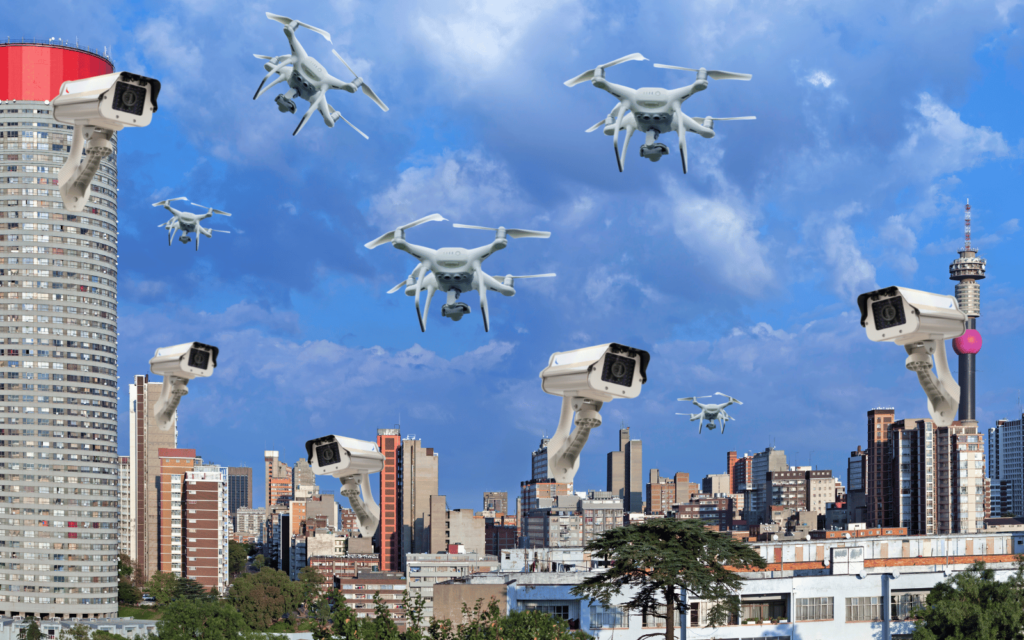Gauteng Premier Panyaza Lesufi gave his first State of the Province Address last night during which he announced several technology-driven solutions to the province’s rising crime rates. Like any good premier, he acknowledged that urgent action was needed.
“Today, let’s openly admit, our province is a home of heartless and merciless criminals. They do as they wish. If this situation is left unattended it will be the end of all of us.”
Technology usually requires electricity
Lesufi is of the opinion that technology holds the answers to some of Gauteng’s crime problems. He also mentioned something about a partnership with the private sector and boosting training and support for provincial police. That’s great, but we’re mostly concerned with his plan to seemingly turn South Africa into Oceania.
The first technology-focused plan is the rollout of a panic button for Gauteng denizens. You might also see these referred to as “e-Panic buttons”. The prefix is presumably to stop people trying to sew them onto their shirts in confusion. These will be linked to law enforcement services and managed through a new integrated command centre so that, “[e]very citizen, every time they feel threatened, will push the button, and this will alert authorities,” he said.
We’ll set aside our initial question of how exactly a new panic button will make the police respond any faster. We’ll also try to avoid poking too many holes in this plan until we know how his office plans to fund, build, implement, manage, and maintain this new system. For now, we just hope the buttons are clearly labelled and don’t look exactly like a motorised gate remote.
A page from Obama’s book?
A panic button might not sound that invasive and even if it doesn’t do what Lesufi intends, it might bring a sense of security which might be enough for some people. A province-wide network of CCTV cameras featuring car and face recognition, on the other hand, could be very invasive.
The Gauteng premier intends to “connect suburb[s], townships, business districts, schools and other public places” with CCTV cameras for strictly crime-fighting reasons and definitely nothing else. If there is a dystopian sci-fi novel bingo card out there, CCTV cameras with facial recognition are on it.
Car number plate recognition in CCTV cameras is slightly less invasive. Together with that, and because our current system is running out of combinations, Lesufi also plans to introduce a new number plate system. These new plates will apparently be hard to copy and tamper-proof (how isn’t explained). He also called on the Southern African Development Community (SADC) to “create a new database of all vehicles within the region so that we can have a common verification platform.”
Read More: South African Police Service to use drones for crime monitoring
We’re pretty sure using drones in “areas that are difficult to patrol and police” is on that dystopian sci-fi novel bingo card as well. Lesufi said his planned use of drones in the province was to “ensure our police are not sacrificial lambs in the battles with criminals.”
He said Gauteng is set to receive 180 drones (he didn’t say which ones) “equipped with technology that can capture the direction of bullets”. We took that to refer to some kind of acoustic or ballistic technology and not a really fast drone that physically catches bullets. We reckon the latter would be much more effective.
Where them guns at?
Lastly, Lesufi announced that “[t]ogether with the private security industry, we have found a solution that will assist in tracking stolen guns and locate them wherever they are in our country.” If his statement is accurate, we could sell this technology to the US and pay off Eskom’s R400 billion or so debut. Just a thought.
As with the other tech-driven solutions, he didn’t provide any specifics about how firearm tracking would work. Maybe he didn’t want to give criminals ideas on how to beat his solutions. Or maybe the specifics will only be made available when the backlash from privacy-concerned citizens (or Afriforum) starts.
